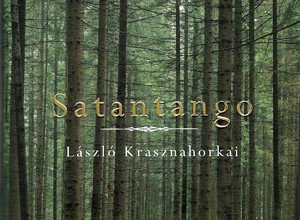Reviewed by Isra Ansari
‘The Blind Man’s Garden’, Nadeem Aslam, Knopf (2013), 384 pagesÂ
There is a sentence in Nadeem Aslam’s ‘The Blind Man’s Garden’ which runs the length of an entire page, and a quarter of the next. It is peppered with commas, hyphens, and semi-colons; one would imagine its meaning and essence was swallowed up by its length, and yet the sentence flows beautifully. The novel discusses the struggle between love and honour, duty and faith, humanity and religion. It weaves together the different relationships between people, marriage, brotherhood, the challenges of parenting and our inherent responsibility to those important to us.
One of the most beautiful relationships in ‘The Blind Man’s Garden’ is that of the two foster brothers, Mikal and Jeo.  Brothers in arms, closer than any blood relations, both embark on a dangerous journey into the heart of the war in Afghanistan. Jeo, a third year medical student wishes to use his skills to help the wounded; Mikal a reader of the stars, vows to protect Jeo, and find a way back home, to their family. Although Jeo dies fairly early in the novel, Aslam ensures that Jeo is present throughout. He remains a major character until the end, with Mikal searching for a brother he does not know to be dead.
The relationship between marriage and duty is intrinsic to the story. Rohan, the father and the blind man of the title, constantly prays for the soul of his wife, who died in a state of apostasy. Rohan cannot bring himself to accept that he was in love with someone who was not a believer.  To cope with this blow, Rohan embraces religion with such fervor that, looking back from a vantage point in his old age, he realizes that he shoved religion down his children’s throats, when a far more nuanced approach was needed.
Aslam’s portrayal of Pakistani intimacy is a delight to read. The gentle, loving gestures between a husband and a wife are not publicly acknowledged or deemed socially acceptable in Pakistani society and so Aslam’s descriptions almost have an air of delicacy around them, giving them added significance. This innocent love can only be truly understood by a reader from the same culture.
For a story teller, one of the most important aspects is the setting. The journey between Afghanistan and Pakistan runs smoothly (figuratively speaking): this is because the cultures are similar, and because the Afghanistan in the novel is dominated by the Taliban and Americans and Pakistan is consumed by the ‘War on Terror’. People from both nations are able to relate to the horrific scenes easily. Nadeem Aslam’s inspiration for the breathtaking garden was Pakistan. The flowers, the trees, the birds all symbolized Pakistan and its flight into freedom, with the blind man being Jinnah, who fought for the birth of the nation.
Nadeem Aslam weaves through so many complicated emotions, capturing each one almost effortlessly. His language and style may seem too decadent at first glance, but he manages to firmly grasp the essence of every emotion. His vivid characters all follow their own path, which is deeply influenced by their surroundings and circumstances. Loyalty is another feature which emphasizes the profound bonds within people, which is again, a portrayal of a Pakistani culture where loyalty is sought out and cherished.
As far as the question of the novel being a true representation of Pakistan and South Asian culture is concerned, my answer would be yes — it captures beautifully those caught in the throes of the war, and the consequences faced by families of the deceased. The novel explores how war and terror have irrevocably changed the way we live, perceive the world and cast our opinions, no matter what continent we call home. It has even more successfully understood those who strive wrongfully in the name of religion and those who try to do the right thing because it is their basic human duty.
Isra Ansari is Assistant Fiction Editor for the magazine.





